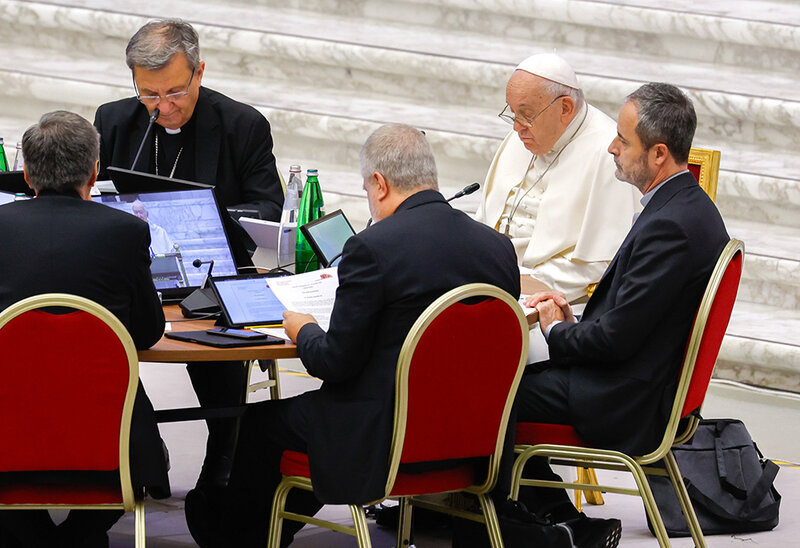While coverage of the conclusion of the first in-person part of the church's synod on synodality is understandably garnering a lot of attention, especially as journalists and commentators begin to unpack the final synthesis document, I don't want to lose sight of a notable intervention (the term for a "short speech" at the synod) that Pope Francis delivered on Wednesday of last week (Oct. 25), days before the close of this year's session.
In his remarks, which were delivered in Spanish, the pope began by describing the church as "the faithful people of God, holy and sinful, a people convoked and called with the power of the beatitudes and of Matthew 25." This clear and simple, yet beautiful, statement follows from the Second Vatican Council's Dogmatic Constitution on the Church, Lumen Gentium, which reminds all the faithful that the church is first and foremost the "people of God." The reference to this theme from Vatican II recurred throughout the synodal discussions, especially in the final week.
One of the reasons Pope Francis' opening ecclesiological statement is significant is that, by restating what the church is at its core, it sets the stage for him to denounce what we might call false descriptions or images of the church.
The primary target of Francis' denouncement is a church governed by clericalism. This should be no surprise to anybody who has followed the pope's ministry as bishop of Rome over the years. In fact, ten years ago to the month, I wrote a column that ran with the title, "Lead us not into clericalism." In that essay, I lifted up Pope Francis' criticism of merciless and self-centered clergy, noting that his focus on the need that "the ministers of the church must be ministers of mercy above all," as he put it, was deeply in keeping with the vision of ministry articulated in the 13th century by his namesake St. Francis of Assisi.



 Religion
Religion Christianity
Christianity


